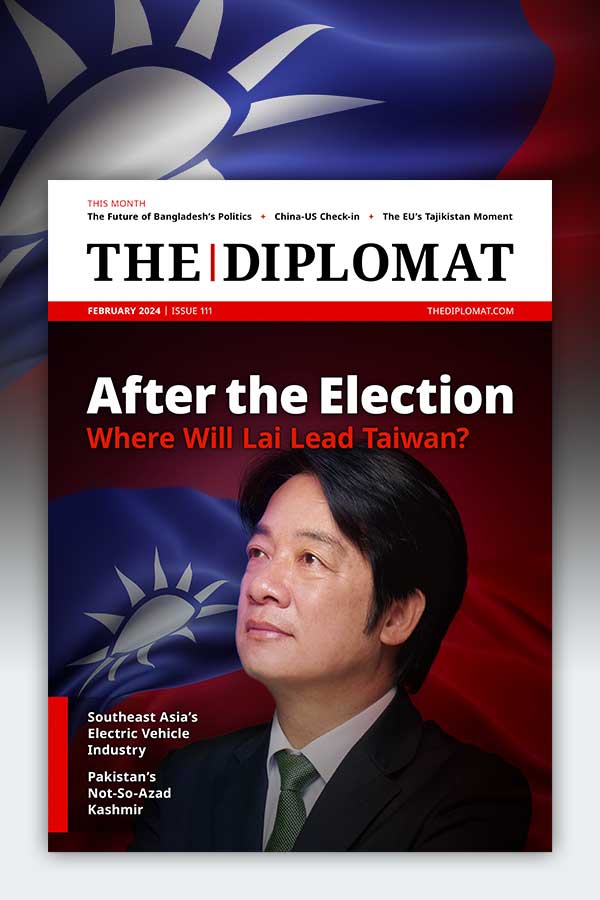| Welcome to the latest issue of Diplomat Brief. This week our top story explores Kashgar, as documented in photographs taken before the mass demolition of Uyghur cultural sites. We also have an interview with Nomin Chinbat, Mongolia’s culture minister, on the intersection between the economy and cultural preservation. |
| Story of the week | ![[object Object]](https://thediplomat.com/diplomat-brief/2024/vol05/images/feature.jpg?v=3) | Society The Uyghurs: Kashgar Before the CatastropheWhat Happened: In 1998, photographer Kevin Bubriski spent a time among the Uyghurs in Kashgar, their ancient capital city in the Xinjiang region of China. It was a crucial moment: before the mass demolition campaign that began in 2009 and gained steam under the worsening crackdown post-2017. Today, Kashgar, especially its Old City, is unrecognizable, with many cultural sites demolished, Uyghur residents displaced, and intrusive surveillance architecture installed. But the photographs from 25-plus years ago preserve a small slice of the vibrancy of the Uyghurs’ spiritual heartland. Our Focus: The persecution of the Uyghurs was evident even in 1998. “In 1998 there was already new construction of high-rise steel and glass buildings everywhere and within a year the rail line reached Kashgar,” Bubriski told The Diplomat. “There was a feeling among the Uyghurs of the deepening marginalization of their community… I recall feeling that photographs might bring awareness to a larger community of the cultural richness of Kashgar and the threat facing the Uyghur people and their culture. ” Things have only gotten worse since then, as China seized on the U.S. “War on Terror” to frame its Xinjiang policies as necessary counterterrorism initiatives. The oppression reached new heights with the extralegal detention of an estimated 1 million Uyghurs in “education” camps beginning in 2017. What Comes Next: Bubriski’s photographs reveal a time when Kashgar, the cultural hub of the Uyghurs, retained much of its traditional life and charm. He hopes that the images will give people a glimpse into what Xinjiang and Kashgar used to be like – and what the world has lost through China’s policies, which have been described as “cultural genocide.” Read this story |
| Behind the News | INTERVIEW Nomin ChinbatMongolian Minister of Culture Nomin Chinbat on the centrality of culture in Mongolia’s economic and diplomatic strategies: “Through diplomacy, cultural showcasing, and investment opportunities, we endeavor to position Mongolia on the world stage as a nation ready to contribute, collaborate, and thrive.” Read the interview |
| This Week in Asia | Northeast Asia US, China National Security Officials MeetOver the weekend, U.S. National Security Advisor Jake Sullivan met his Chinese counterpart, CCP foreign policy chief and Foreign Minister Wang Yi, for two days of talks in Bangkok. The discussions were billed as a follow-up to the big summit between Presidents Joe Biden and Xi Jinping in November, with new details announced on the implementation of promised dialogue mechanisms. For example, on January 30 the promised China-U.S. counternarcotics working group held its first meeting. Find out more | South Asia Imran Khan Convicted – AgainOn Tuesday, former Pakistani Prime Minister Imran Khan was convicted of revealing official secrets and sentenced to 10 years in prison – adding to a three-year prison term handed down in a previous corruption case. On Wednesday, he received yet another sentence – 14 years – in separate corruption case. Khan’s convictions, which he says are politically motivated, have the effect of barring him from participation in February’s elections, despite the PTI leader being the most popular politician in Pakistan. The military is widely believed to be engineering an election victory for three-time Prime Minister Nawaz Sharif and his PML-N, instead. Find out more | Southeast Asia Philippine Leaders Trade Fiery AccusationsThis week, the latent rivalry between former Philippine President Rodrigo Duterte and his successor, Ferdinand Marcos, Jr., finally broke into the open, with the two men exchanging explosive accusations in public. In an speech on January 28, Duterte accused Marcos of being a drug addict, alleged that his allies were plotting to amend the constitution to lift term limits, and warned that he could be ousted like his father, the late dictator Ferdinand E. Marcos. Marcos shot back by ascribing Duterte’s comments to his use of the powerful opiate fentanyl. Tensions within the Marcos-Duterte “UniTeam,” which won a thundering election victory in 2022, have reportedly been growing for months. It now appears to have broken down entirely, with uncertain implications for Marcos’ political future. Find out more | Central Asia Central Asia Comes Into Focus For EuropeThis week in Brussels, Central Asian delegations gathered for an investors forum designed to further efforts to bridge Europe and Central Asia. The presence of a U.S. delegation only heightened attention on the forum. The EU and U.S. alike are interested in developing trade and transit routes through Eurasia that avoid Russia. Central Asian countries, meanwhile, are interested in entertaining all possible offers of investment. Find out more |
| Visualizing APAC |  | Source: Kazakhstan Bureau of National Statistics In 2022 the volume of trade between Kazakhstan and Afghanistan reached a record $987.9 million, twice as much as the previous year ($474.3 million). See the full picture |
| Word of the Week | Diplomacy Tử sĩ and liệt sĩTử sĩ is Vietnamese for “dead enemies,” while liệt sĩ means “martyrs.” The distinction, as determined by the ruling Communist Party, decides which soldiers killed in action are remembered and honored – and which are ignored. Find out more |
|  |
![[object Object]](https://thediplomat.com/diplomat-brief/2024/vol05/images/feature.jpg?v=3)

